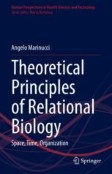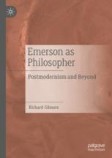Search
Search Results
-
Evolution des Alterns
Alterungsprozesse sind in der Natur keineswegs so selbstverständlich, wie es angesichts unserer eigenen Lebenserfahrung erscheinen mag. Einzeller und...
-
Teleonomy: Revisiting a Proposed Conceptual Replacement for Teleology
The concept of teleonomy has been attracting renewed attention recently. This is based on the idea that teleonomy provides a useful conceptual...
-
A computational model of the cultural co-evolution of language and mindreading
Several evolutionary accounts of human social cognition posit that language has co-evolved with the sophisticated mindreading abilities of modern...

-
The evolution of episodic-like memory: the importance of biological and ecological constraints
A persisting question in the philosophy of animal minds is which nonhuman animals share our capacity for episodic memory (EM). Many authors address...
-
Epilogue: Spandrels and Philosophy
This short closing chapter briefly argues against a possible misinterpretation of the results of the book, especially Chap. 5, that is, against an...
-
Can Teleology Be Saved? Three Constraints on Bioteleology
The dynamic regularities of living things still demand a language of ends and a theory of power, form, and function to go with it. Ancient and...
-
Self-awareness, Language, and Empirical Knowledge
I argue that the evolution of language had a huge influence on human knowledge and that much of our experiential knowledge evolved into empirical...
-
The concepts and origins of cell mortality
Organismal death is foundational to the evolution of life, and many biological concepts such as natural selection and life history strategy are so...
-
Traces of Darkness in Early Daoism: The Evolution of Vision Metaphors in the Laozi
An interesting feature of the language of many Daoist texts is their atypical idealization of Darkness and Obscurity, which contrasts with the...
-
Ontophylogenesis, Interpretation and Symmetries
After introducing the concept of organization, this chapter is devoted to evolution, limiting analysis to the evolutionary interpretation of...
-
Emerson and Žižek: On the Crack in Everything, or, the Dialectical Nature of Philosophy and the World
Emerson says, “There is a crack in everything,” and then Žižek, more than a century and a half later, refers to “the crack in the positive order of...
-
Toolmaking and the evolution of normative cognition
We are all guided by thousands of norms, but how did our capacity for normative cognition evolve? I propose there is a deep but neglected link...

-
Evolutionary Theoretician Edward D. Cope and the Extended Evolutionary Synthesis Debate
The Modern Synthesis (MS) gene-centered population model of evolution is currently being challenged by the Extended Evolutionary Synthesis (ESS)...
-
Between Science and Ideology: The Case of Clémence Royer
Clémence RoyerRoyer, Clémence (1830–1902) was the first translator of Darwin’sDarwin, Charles On the Origin of Species into French. She prefaced her...
-
Are Accounting Standards Memes? The Survival of Accounting Evolution in an Age of Regulation
This paper employs memetics to argue against the view that standardisation overwhelms the evolution of accounting. I suggest that, in an unregulated...
-
Sri Aurobindo’s Hindu Philosophy: Spiritual Evolution of Human Consciousness
As I understand, Sri Aurobindo’s deep concern was twofold against the backdrop of the existing social, political, and spiritual situations of his...
-
Do Somatic Cells Really Sacrifice Themselves? Why an Appeal to Coercion May be a Helpful Strategy in Explaining the Evolution of Multicellularity
An understanding of the factors behind the evolution of multicellularity is one of today’s frontiers in evolutionary biology. This is because...

-
On the Origin of Negation
The ability to express negation in language may have been the result of an adaptive process. However, there are different accounts of adaptation in...

-
From the harmony to the tension: Helmuth Plessner and Kurt Goldstein’s readings of Jakob von Uexküll
This paper investigates the reception and discussion of Jakob von Uexküll’s biological theory by two German thinkers of his time, Helmuth Plessner...
-
Resolving the evolutionary paradox of consciousness
Evolutionary fitness threats and rewards are associated with subjectively unpleasant and pleasant sensations, respectively. Initially, these...

